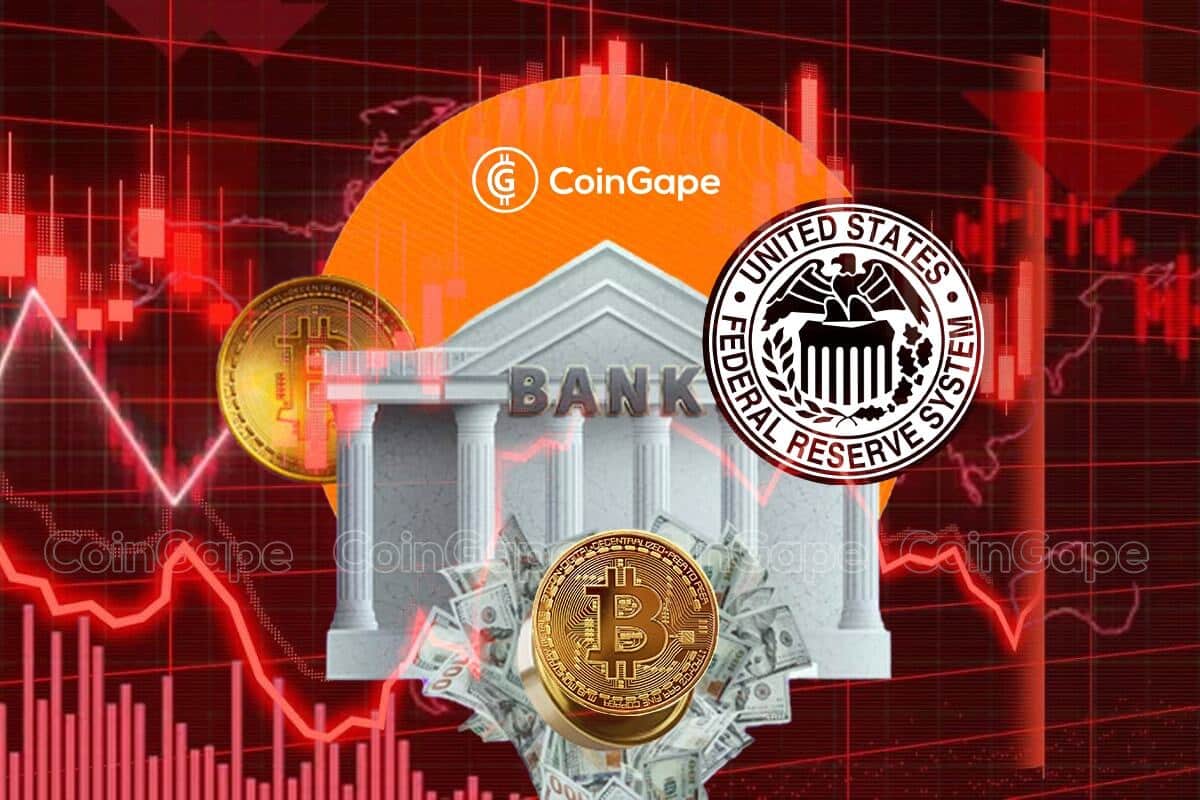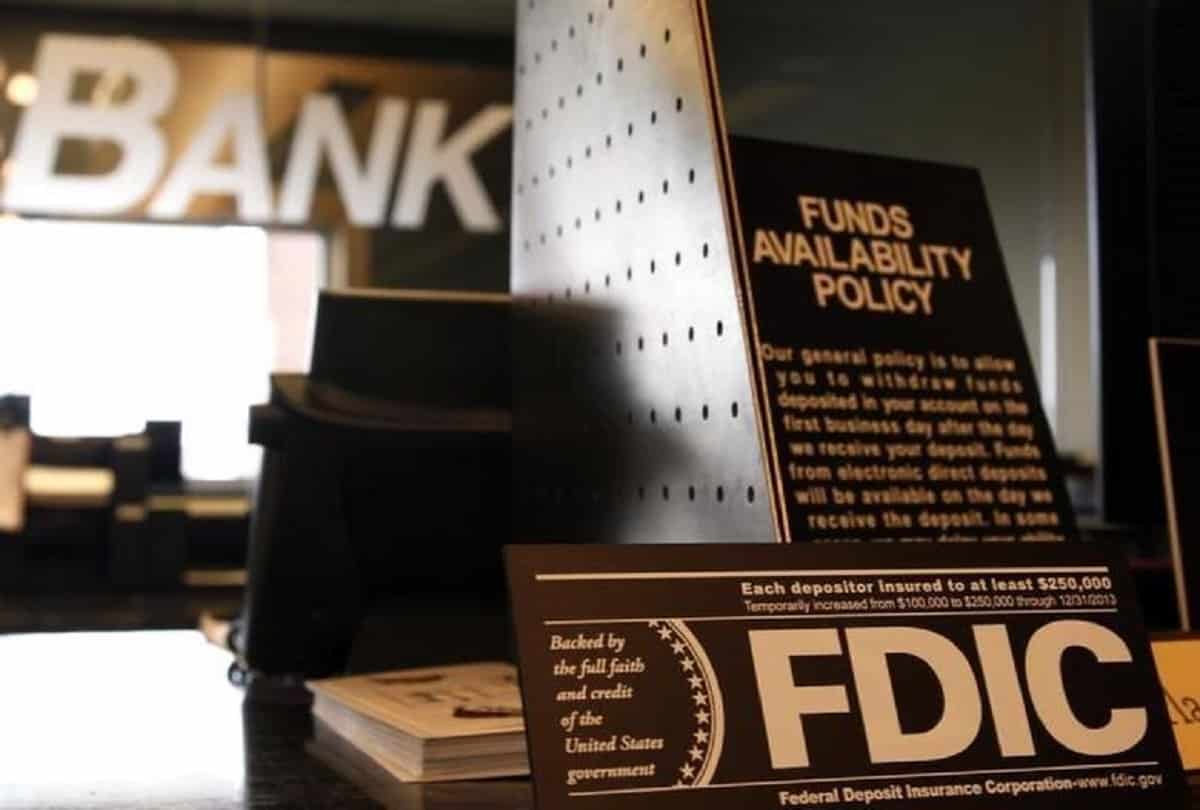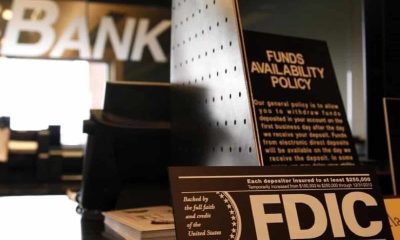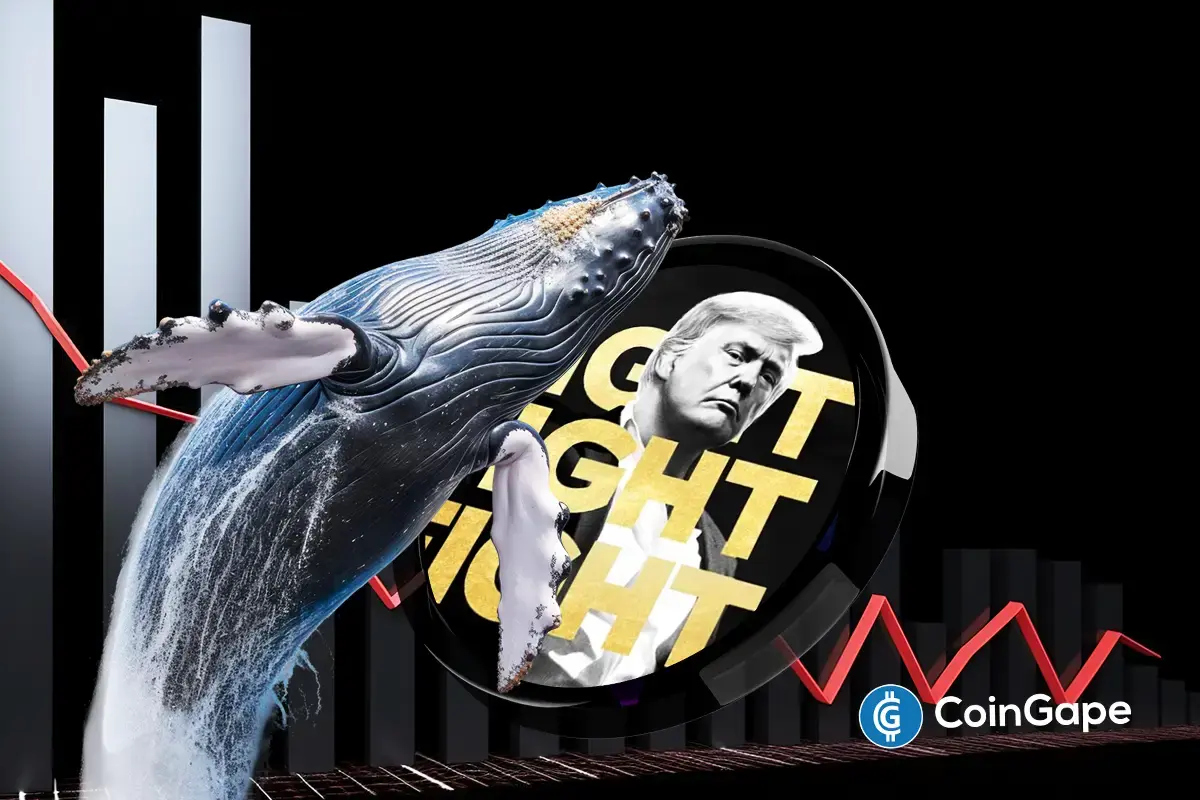Regulation
Fed Governor Says Rate Cuts Unlikely This Year, Crypto Crash To Worsen?

Federal Reserve Governor Michelle W. Bowman declared that it is premature to consider cutting interest rates in 2024. This announcement comes at a time of heightened sensitivity in both traditional and crypto markets. Moreover, the situation has intensified as key economic data releases are anticipated later this week.
Federal Reserve Governor Ditches Rate Cut Speculations
In a recent statement, Governor Bowman underscored that while there has been modest progress in controlling U.S. inflation, it remains elevated and subject to various upside risks. This perspective aligns with the Federal Reserve’s cautious approach to monetary policy amidst an uncertain economic landscape. Moreover, Bowman highlighted the necessity for the Federal Reserve to maintain its independence and remain apolitical in its decision-making processes.
The remarks come ahead of the second revision of the U.S. GDP data for the first quarter, which will be released on Thursday, June 27. Additionally, critical data on Personal Income, Personal Spending, and the U.S. PCE inflation are scheduled for release on Friday. The PCE and Core PCE inflation data, in particular, will be closely scrutinized by market participants.
The Federal Reserve Governor stated, “However, with average core CPI inflation this year through May running at an annualized rate of 3.8 percent, notably above average inflation in the second half of last year, I expect inflation to remain elevated for some time.” Moreover, he hinted at diverging from global monetary policy trends, including the U.K. policies.
Bowman added, “In contrast to the past two years, it is possible over the coming months that the path of monetary policy in the U.S. will diverge from that of other advanced economies, including the U.K., as the underlying economic developments and outlooks across jurisdictions exhibit greater heterogeneity.” This suggests that even if Bank of England (BoE) considers a rate cut due to the recent inflation drop to 2%, the U.S. is unlikely to mirror the approach.
Also Read: Bitcoin Crashes 30% Against Gold, Here’s Why Peter Schiff Warns Further Dip
Bearish Trend In Crypto Market
The Federal Reserve’s monetary policy plays a crucial role in shaping market conditions, and this extends to the crypto market. Higher interest rates generally lead to a stronger U.S. dollar, which can exert downward pressure on asset prices, including cryptocurrencies. Conversely, lower rates typically support asset price inflation as investors seek higher returns in riskier markets.
Bowman’s indication that rate cuts are unlikely until 2025 implies that the cost of borrowing will remain relatively high, potentially stifling investment flows into the crypto market. This scenario can expedite the June crypto crash, as investors may prefer safer, yield-bearing assets over volatile cryptocurrencies.
The crypto market has been experiencing significant volatility. Bitcoin (BTC), the leading crypto, recently witnessed a crash below $59,000 amid substantial sell-offs. Contributing factors include the latest offloading of 400 BTC by the German government. In addition, the anticipated repayment of $9 billion worth of Bitcoin from Mt. Gox further dampened market sentiment.
Bitcoin’s Relative Strength Index (RSI) recently touched 28, a level that typically signals an oversold condition and potential for a rebound. Despite this, the lack of anticipated rate cuts has fueled fears of prolonged market turbulence. As traditional financial conditions tighten, the appetite for riskier assets such as cryptocurrencies often diminishes.
However, altcoins like Ethereum (ETH), Solana (SOL, and Dogecoin (DOGE) showed resilience despite Bitcoin’s decline. Nonetheless, the fears of a crypto crash loom as the Federal Reserve maintains a hawkish stance on rate cuts. 10x Research, a crypto analytics firm, highlighted that despite the cool CPI data, Bitcoin failed to breakout due to the Fed’s rigid stance.
Also Read: Bitcoin Miners Sell 30K BTC, Miner Reserve Dips To 14-Year Low
The presented content may include the personal opinion of the author and is subject to market condition. Do your market research before investing in cryptocurrencies. The author or the publication does not hold any responsibility for your personal financial loss.
Regulation
US SEC Drops Charges Against Hawk Tuah Girl Hailey Welch

Hawk Tuah girl Hailey Welch, known for her association with the controversial $HAWK token, has been cleared of any wrongdoing after a lengthy investigation by the U.S. Securities and Exchange Commission (SEC). The SEC has decided not to press charges against Welch in connection with the rapid rise and subsequent collapse of the meme-based cryptocurrency.
US SEC Investigation Into Hawk Tuah Girl Concludes Without Charges
The SEC had launched an investigation into the $HAWK token after its dramatic price drop. The token, which was linked to Welch’s viral persona, initially saw a market cap surge to $490 million before crashing by over 90%. Investors who were impacted by the crash filed a lawsuit against those behind the project, alleging that the coin had been promoted and sold without proper registration.
Hawk Tuah girl Hailey Welch, who cooperated fully with the investigation, expressed relief after the SEC’s decision. “For the past few months, I’ve been cooperating with all the authorities and attorneys, and finally, that work is complete,” Welch told TMZ.
Her attorney, James Sallah, confirmed that the SEC had closed the case without any findings against her, adding that there would be no monetary sanctions or restrictions on Welch’s future involvement in cryptocurrency or securities.
This Is A Developing News, Please Check Back For More
Disclaimer: The presented content may include the personal opinion of the author and is subject to market condition. Do your market research before investing in cryptocurrencies. The author or the publication does not hold any responsibility for your personal financial loss.
Regulation
Sonic Labs To Abandon Plans For Algorithmic USD Stablecoin, Here’s Why

Barely a week after hinting at launching an algorithmic USD stablecoin, Sonic Labs is shuttering its plans. Sonic Labs co-founder Andre Cronje revealed that incoming stablecoin regulation in the US contributes to the change of stance.
Sonic Labs Makes U-Turn Over Algorithmic USD Stablecoin
In mid-March, Sonic Labs disclosed plans for a yield-generating algorithmic stablecoin for its blockchain. However, new developments in the US regulatory landscape are forcing the company to ditch its algorithmic stablecoin ambitions.
Sonic Labs co-founder Andre Cronje confirmed the change in direction via an X post following the release of the full draft of the STABLE Act by Congress for clearer oversight. According to the text, lawmakers are pushing for a two-year moratorium on algorithmic stablecoin, souring Sonic Labs plans.
Unlike mainstream stablecoins backed by fiat or other commodities, algorithmic stablecoins rely on smart contracts to maintain their peg. The 2022 implosion of Terra’s ecosystem following the de-pegging of its TerraUSD (UST) algorithmic stablecoin stunned regulators.
“We will no longer be releasing a USD-based algorithmic stablecoin,” said Cronje.
In a light-hearted note, community members teased potential strategies for Sonic Labs to sidestep incoming stablecoin regulation. Apart from the loophole of launching the algorithmic stablecoin before the regulation goes live, Cronje teased an algorithmic dirham that will be denominated in USD.
Industry Players Are Bracing For New Stablecoin Regulations
Stablecoin issuers are steeling themselves for incoming stablecoin regulations in the US. While the GENIUS Act and STABLE Act continue to inch forward, there are common denominators in both bills.
For starters, there is the requirement for equivalent reserves at a 1:1 ratio with both bills steering clear of algorithmic stablecoins. The White House is favoring the GENIUS Act over the STABLE Act as lobbyists rally to stifle the possibility of a Conference Committee.
Authorities are targeting stablecoin regulation to reach Trump in two months as issuers jostle for position. Tether, Circle, and Ripple are staking their claims to lead the US government’s ambitions to rely on stablecoins to maintain the dollar’s dominance.
Disclaimer: The presented content may include the personal opinion of the author and is subject to market condition. Do your market research before investing in cryptocurrencies. The author or the publication does not hold any responsibility for your personal financial loss.
Regulation
FDIC Revises Crypto Guidelines Allowing Banks To Enter Digital Assets

The Federal Deposit Insurance Corporation (FDIC) has updated its guidelines, enabling banks to engage in cryptocurrency-related activities without seeking prior approval. This new policy shift signals a change in the FDIC’s approach to the growing role of digital assets in the banking sector.
New FDIC Guidelines on Crypto-Related Activities
The FDIC has issued a new Financial Institution Letter (FIL-7-2025), which provides updated guidance for banks looking to engage in cryptocurrency activities. The new guidance rescinds the previous policy set out in FIL-16-2022, which required banks to notify the FDIC before engaging in such activities.
Under the new rules, banks can now participate in permissible crypto-related activities without waiting for FDIC approval, as long as they manage the risks appropriately.
This change is seen as a shift in the FDIC’s stance, following the agency’s earlier stance that required prior approval for crypto engagements. FDIC Acting Chairman Travis Hill expressed that this new approach aims to establish a more consistent framework for banks to explore and adopt emerging technologies like crypto-assets and blockchain.
“With today’s action, the FDIC is turning the page on the flawed approach of the past three years,” said Hill in a statement.
This Is A Developing News, Please Check Back For More
Disclaimer: The presented content may include the personal opinion of the author and is subject to market condition. Do your market research before investing in cryptocurrencies. The author or the publication does not hold any responsibility for your personal financial loss.
-

 Bitcoin24 hours ago
Bitcoin24 hours agoStrategic Bitcoin Reserve Proposed by Brazil’s VP Advisor
-

 Market22 hours ago
Market22 hours agoXRP Price Slides Slowly—Is a Bigger Drop Coming?
-

 Market23 hours ago
Market23 hours agoTerra’s Crypto Claims Portal Opens Soon: Key Dates and Info
-

 Altcoin22 hours ago
Altcoin22 hours agoWhy Is Pi Network Coin Price Up 5% Despite Altcoins Market Correction?
-

 Regulation14 hours ago
Regulation14 hours agoFDIC Revises Crypto Guidelines Allowing Banks To Enter Digital Assets
-

 Altcoin18 hours ago
Altcoin18 hours agoWhy the US SEC Is Delaying the Ripple Case?
-

 Ethereum18 hours ago
Ethereum18 hours agoEthereum Fails To Break $2,100 Resistance – Growing Downside Risk?
-

 Market17 hours ago
Market17 hours agoAnalysts Reveal Q2 Crypto Market Outlook: BTC at $200,000?




















✓ Share: